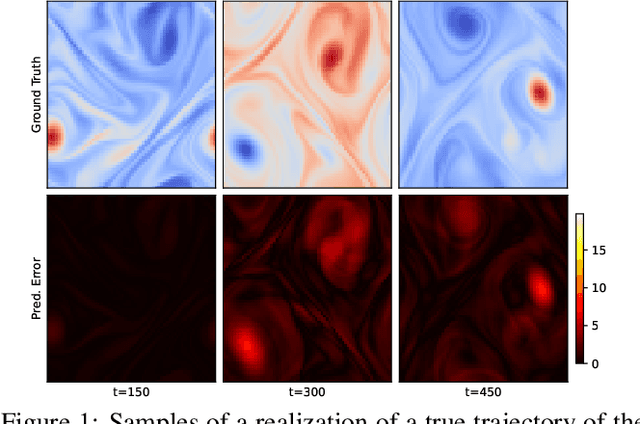Learning Semilinear Neural Operators : A Unified Recursive Framework For Prediction And Data Assimilation
Paper and Code
Feb 24, 2024



Recent advances in the theory of Neural Operators (NOs) have enabled fast and accurate computation of the solutions to complex systems described by partial differential equations (PDEs). Despite their great success, current NO-based solutions face important challenges when dealing with spatio-temporal PDEs over long time scales. Specifically, the current theory of NOs does not present a systematic framework to perform data assimilation and efficiently correct the evolution of PDE solutions over time based on sparsely sampled noisy measurements. In this paper, we propose a learning-based state-space approach to compute the solution operators to infinite-dimensional semilinear PDEs. Exploiting the structure of semilinear PDEs and the theory of nonlinear observers in function spaces, we develop a flexible recursive method that allows for both prediction and data assimilation by combining prediction and correction operations. The proposed framework is capable of producing fast and accurate predictions over long time horizons, dealing with irregularly sampled noisy measurements to correct the solution, and benefits from the decoupling between the spatial and temporal dynamics of this class of PDEs. We show through experiments on the Kuramoto-Sivashinsky, Navier-Stokes and Korteweg-de Vries equations that the proposed model is robust to noise and can leverage arbitrary amounts of measurements to correct its prediction over a long time horizon with little computational overhead.
 Add to Chrome
Add to Chrome Add to Firefox
Add to Firefox Add to Edge
Add to Edge